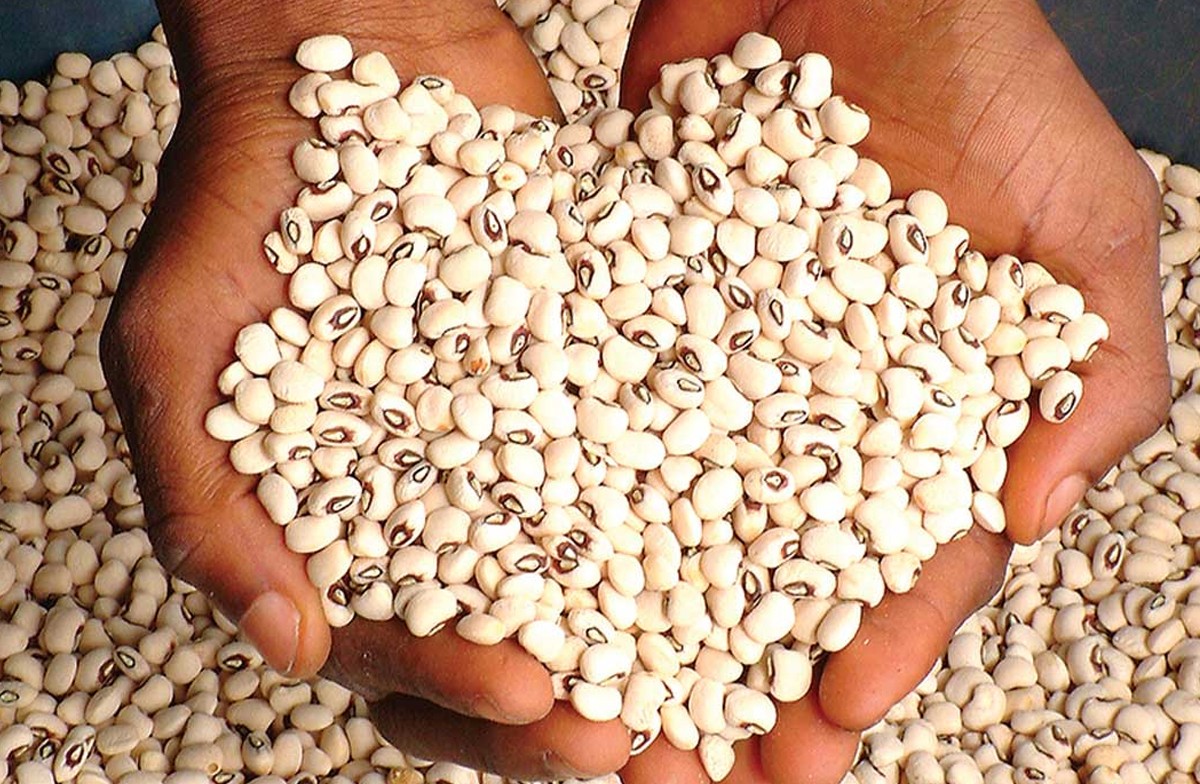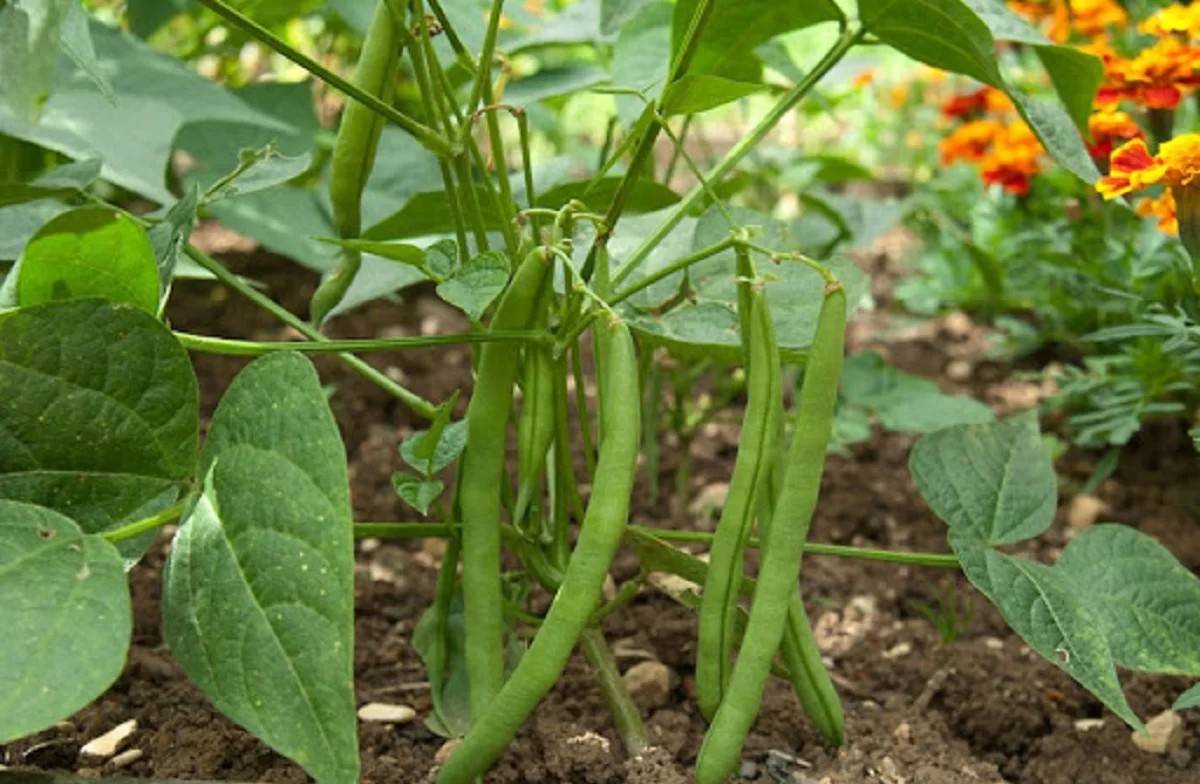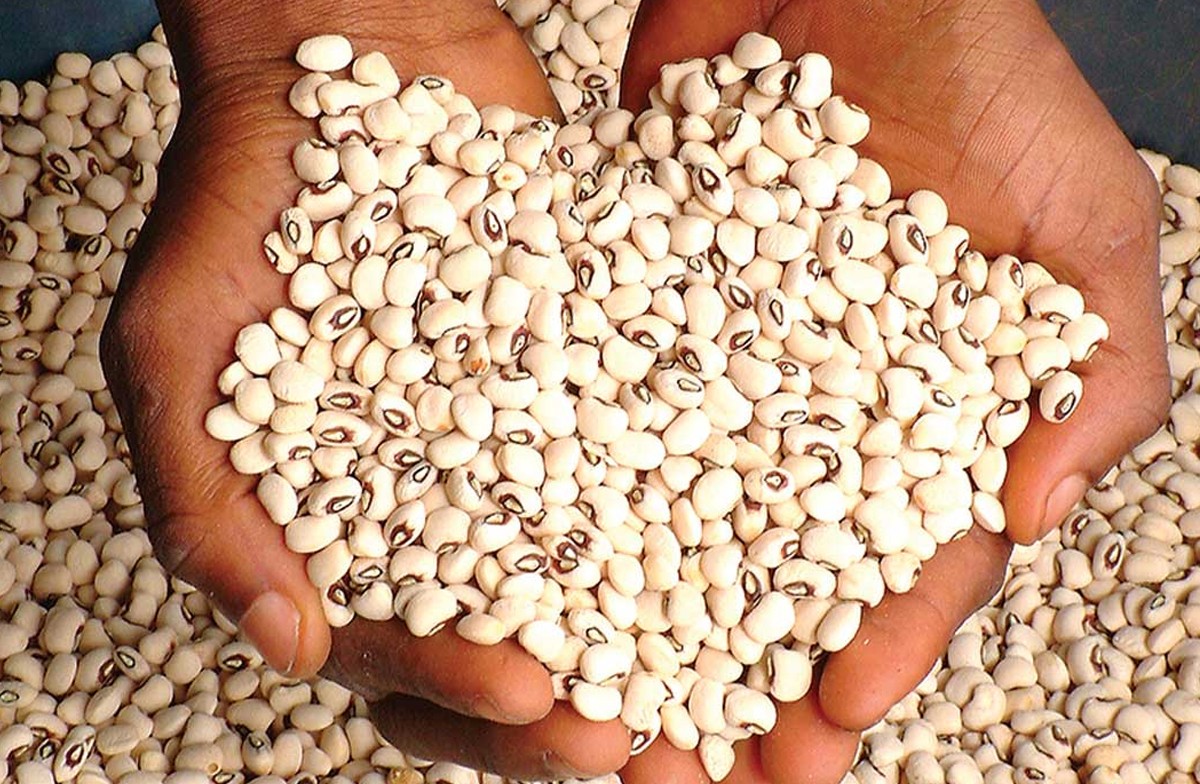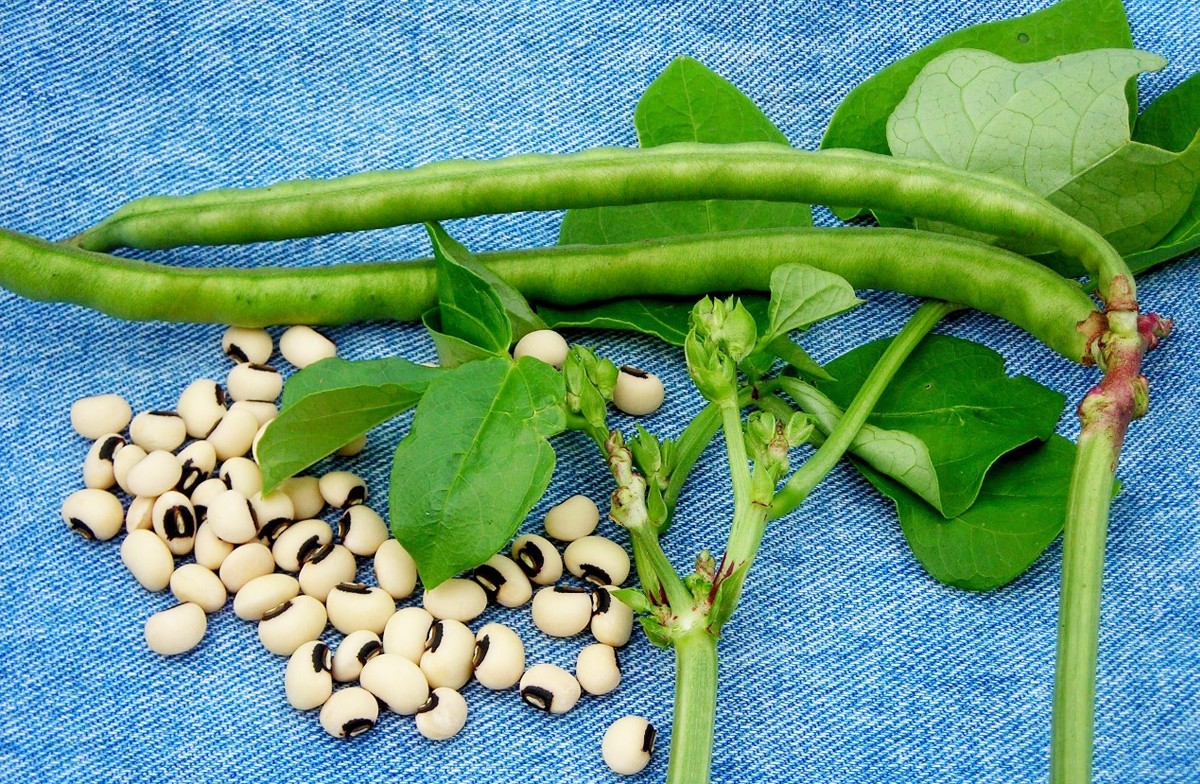Cowpea
Cowpea, also known as black-eyed pea or southern pea, is a legume plant that belongs to the family Fabaceae. It is a widely cultivated crop in many parts of the world, particularly in Africa, Asia, and the Americas.
The cowpea plant is an annual, herbaceous vine that can grow up to 3 meters long. It has pinnately compound leaves with 3 to 9 leaflets, and produces white, pink, or purple flowers. The plant also produces elongated pods that can be green, yellow, or purple, depending on the variety.
Cowpeas are a drought-tolerant crop that can grow in a wide range of soil types, including sandy, loamy, and clay soils. They are commonly grown as a food crop for both human consumption and livestock feed. The seeds of the cowpea plant are high in protein and other essential nutrients, and can be cooked and eaten like other legumes. The leaves and stems of the plant are also sometimes used as animal feed.
In addition to its use as a food crop, the cowpea plant has several other potential applications. It is sometimes used as a cover crop to help improve soil fertility and reduce erosion. The plant is also being studied for its potential as a source of biofuel, as well as for its ability to fix nitrogen in the soil, which can help reduce the need for synthetic fertilizers.
In natural health, cowpeas may be considered a cooling food, which can help clear heat and detoxify the body. They are also considered to be rich in nutrients such as protein, iron, and other minerals, which can be beneficial for certain health conditions.
In general, cowpeas may be recommended in natural health for people with conditions such as inflammation, fever, or constipation. They may also be recommended for people who are recovering from illness or who need to replenish their energy and strength. However, as with any dietary recommendation or herbal formula, it's important to consult with a qualified natural health practitioner to determine the specific recommendations for your individual needs.
Nutritional benefits of cowpea
Cowpea (Vigna unguiculata) is a highly nutritious legume that is rich in a variety of nutrients. Here are some of the nutritional benefits of cowpea:
- Protein: Cowpea is a good source of protein, with an average protein content of about 23-24% of its dry weight. This makes it a valuable source of plant-based protein for vegetarians and vegans.
- Fiber: Cowpea is a rich source of dietary fiber, which plays an important role in digestive health by promoting regular bowel movements and reducing the risk of constipation.
- Vitamins and minerals: Cowpea is a good source of several vitamins and minerals, including vitamin B1, B2, B3, B5, B6, folic acid, vitamin C, magnesium, potassium, and iron. These nutrients are important for overall health and help to support various bodily functions.
- Antioxidants: Cowpea is rich in antioxidants such as phenolic compounds, flavonoids, and carotenoids, which help to protect the body against oxidative stress and reduce the risk of chronic diseases such as cancer and heart disease.
- Low in fat: Cowpea is a low-fat food, making it a healthy choice for those looking to maintain a healthy weight or reduce their fat intake.
Pharmacology of cowpea
Cowpea (Vigna unguiculata) is a legume that has been traditionally used as food and medicine in various parts of the world. Pharmacologically, cowpea has been found to possess several bioactive compounds with potential health benefits. Here are some of the pharmacological properties of cowpea:
- Antioxidant properties: Cowpea contains a high amount of antioxidants such as phenolic compounds, flavonoids, and carotenoids that help to scavenge free radicals and protect the body against oxidative stress.
- Anti-inflammatory properties: The bioactive compounds present in cowpea such as saponins, flavonoids, and polyphenols have been found to exhibit anti-inflammatory properties by inhibiting the production of pro-inflammatory cytokines.
- Antimicrobial properties: Cowpea has been found to possess antimicrobial activity against several microorganisms such as Staphylococcus aureus, Escherichia coli, and Candida albicans. This activity is attributed to the presence of flavonoids, tannins, and saponins.
- Antidiabetic properties: Cowpea has been found to possess hypoglycemic properties by reducing blood glucose levels in diabetic rats. This activity is attributed to the presence of fiber, protein, and antioxidants.
- Anti-cancer properties: Cowpea has been found to possess anti-cancer properties by inhibiting the proliferation of cancer cells. This activity is attributed to the presence of bioactive compounds such as flavonoids, phenolic acids, and saponins.
Who should eat cowpea
Natural health emphasizes the use of food as medicine and recognizes that different foods can be beneficial for different individuals based on their constitution and health status. Cowpea (Vigna unguiculata) is considered a nourishing food in natural health that is suitable for a wide range of people.
According to natural health, cowpea is believed to have a sweet and neutral nature and can tonify the spleen and stomach, nourish blood and yin, and promote urination. It is also believed to be beneficial for conditions such as edema, anemia, and constipation.
Cowpea is generally recommended for people who have weak digestive systems or those who are experiencing symptoms such as bloating, gas, and poor appetite. It is also recommended for people who have weak immune systems or those who are recovering from an illness or injury.
However, it is important to note that natural health recommendations are individualized, and the suitability of cowpea for a particular individual will depend on their unique constitution and health status. It is always best to consult with a licensed natural health practitioner to determine if cowpea is an appropriate food for you based on your specific health needs.
Who should avoid cowpea
In natural health, foods are often classified according to their energetic properties and how they affect the body. While cowpea (Vigna unguiculata) is generally considered a nourishing food that is beneficial for many people, there are some cases where it may not be recommended. Here are some instances where cowpea should be avoided in natural health:
- Dampness and Phlegm: Cowpea has a nourishing nature and can tonify the spleen and stomach, but it can also generate dampness and phlegm in the body, especially when consumed in excess. Therefore, it is not recommended for people who have a tendency to accumulate dampness or phlegm, such as those with digestive issues or respiratory problems.
- Cold and Deficient Conditions: Cowpea is a neutral food in natural health, which means it neither warms nor cools the body. However, it is considered a nourishing food, and excessive consumption can create an overly damp and cold environment in the body, which is not suitable for individuals who have a cold and deficient constitution or those who are experiencing cold and deficient symptoms such as cold limbs, fatigue, and loose stools.
- Allergies and Sensitivities: Cowpea is a legume, and some individuals may have an allergic reaction or sensitivity to it. If you have a history of allergic reactions to legumes or cowpea specifically, it is best to avoid it.
As with any food or herb, it is important to consult with a licensed natural health practitioner to determine if cowpea is appropriate for you based on your specific health needs and constitution.
In Person With Heshoutang Members
With Heshoutang Online Members
Fill Out the Questionnaire by yourself
When you subscribe to the blog, we will send you an e-mail when there are new updates on the site so you wouldn't miss them.

















Comments